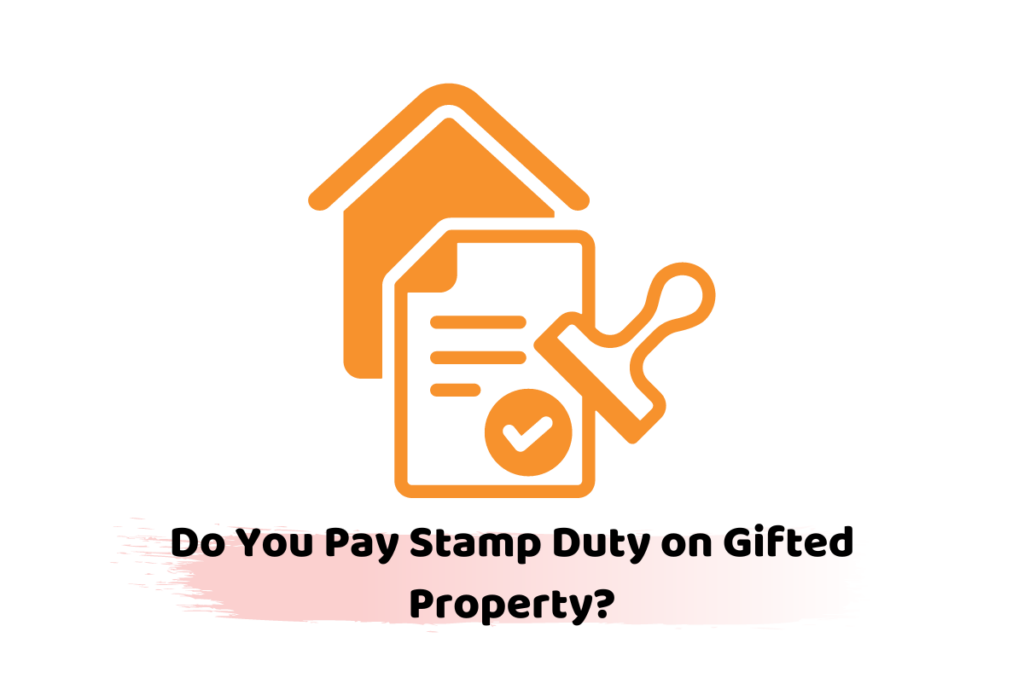This discussion of stamp duty on gifted property in the UK provides a brief overview of some of the key concepts and considerations in this area of law in the UK. Stamp duty on gifting property in the UK has several complex rules and regulations that are important to understand.
In general, if a property is transferred as a result of a gift, the recipient may be required to pay stamp duty on the property. In some cases, the transfer may be deemed to be a part of another transaction that is exempt from stamp duty. Such as a transfer of marital assets during divorce or separation.
Get in touch with one of our experts to learn more about stamp duty on gifted property. We are available from 9:00 am – 05:30 pm Monday to Friday.
What is Stamp Duty?
Stamp duty is a tax that is paid when a person acquires a certain interest in property, shares, or other securities, which is typically charged at a fixed rate. The rate for purchase of property or shares in the UK ranges from 0% to 12%, with the highest rate being charged on land and property valued at over £1.5 million. The buyer is usually required to pay the stamp duty before acquiring the property, share, or other security.
The process for paying stamp duty in the UK is typically as follows:
1. The buyer agrees to purchase the property or security.
2. The buyer completes the purchase and pays the stamp duty to HMRC before acquiring the property or security.
Do You Pay Stamp Duty on Gifted Property?
If the value of the property being gifted is less than £325,000 and the gifting is from a parent or grandparent to a child or grandchild. The recipient can also claim an exemption from stamp duty for any property that is being given as a gift from a parent to a child or grandchild.
If the property is being gifted from a third party who is not related to the recipient of the property, then the value of the property may not affect the amount of stamp duty that the recipient will have to pay. The recipient should carefully consider their financial situation before deciding whether or not to pay stamp duty on the property.
What If You’re Left Land or Property in a Will?
If ownership is transferred through inheritance, then the beneficiary of the will may be required to pay stamp duty on the property. In the case of inheritance tax, if the total value of the estate being left in a will is greater than the estate tax threshold. The recipient should carefully consider their financial situation before deciding whether or not to pay stamp duty on the property.
What If You’re Given Property as a Gift?
If a property is given as a gift, the recipient may be required to pay stamp duty on the property, depending on the value of the property and the situation surrounding the transfer. In the UK, the stamp duty threshold for residential property transactions is £125,000, and for non-residential property transactions is £375,000.
It is important to note that the decision to pay stamp duty on a property given as a gift is a personal one, and the recipient should carefully consider their financial situation.
Do I Need to Pay Stamp Duty Because of Divorce, Separation, or the End of a Civil Partnership?
If a property is transferred as a result of a divorce, separation, or the end of a civil partnership, the rules surrounding the payment of stamp duty can vary depending on the circumstances of the case.
However, in some cases, the transfer may be deemed to be a part of another transaction that is exempt from stamp duty, such as a transfer of marital assets.
The payment of stamp duty in the case of divorce, separation, or the end of a civil partnership is a complex area of law. It is always best to seek the advice of a financial advisor or a tax professional to ensure that any exception or exemption is being properly considered.
The Bottom Line
In summary, stamp duty on gifted property, the rules surrounding stamp duty on gifted property in the UK can be complex. It is always best to seek the advice of a financial advisor or a tax professional to ensure that any exception or exemption is being properly considered.
In general, if a property is transferred as a result of a gift, the recipient may be required to pay stamp duty on the property. Depending on the value of the property and the situation surrounding the transfer. In some cases, the transfer may be deemed to be a part of another transaction that is exempt from stamp duty, such as a transfer of marital assets during divorce or separation.
Reach out to our expert professionals to get your queries answered instantly. We would love to come up with the best possible solutions to your queries about stamp duty on gifted property.
Disclaimer: The information about stamp duty on gifted property is provided in this article including text and graphics. It does not intend to disregard any of the professional advice.





















































